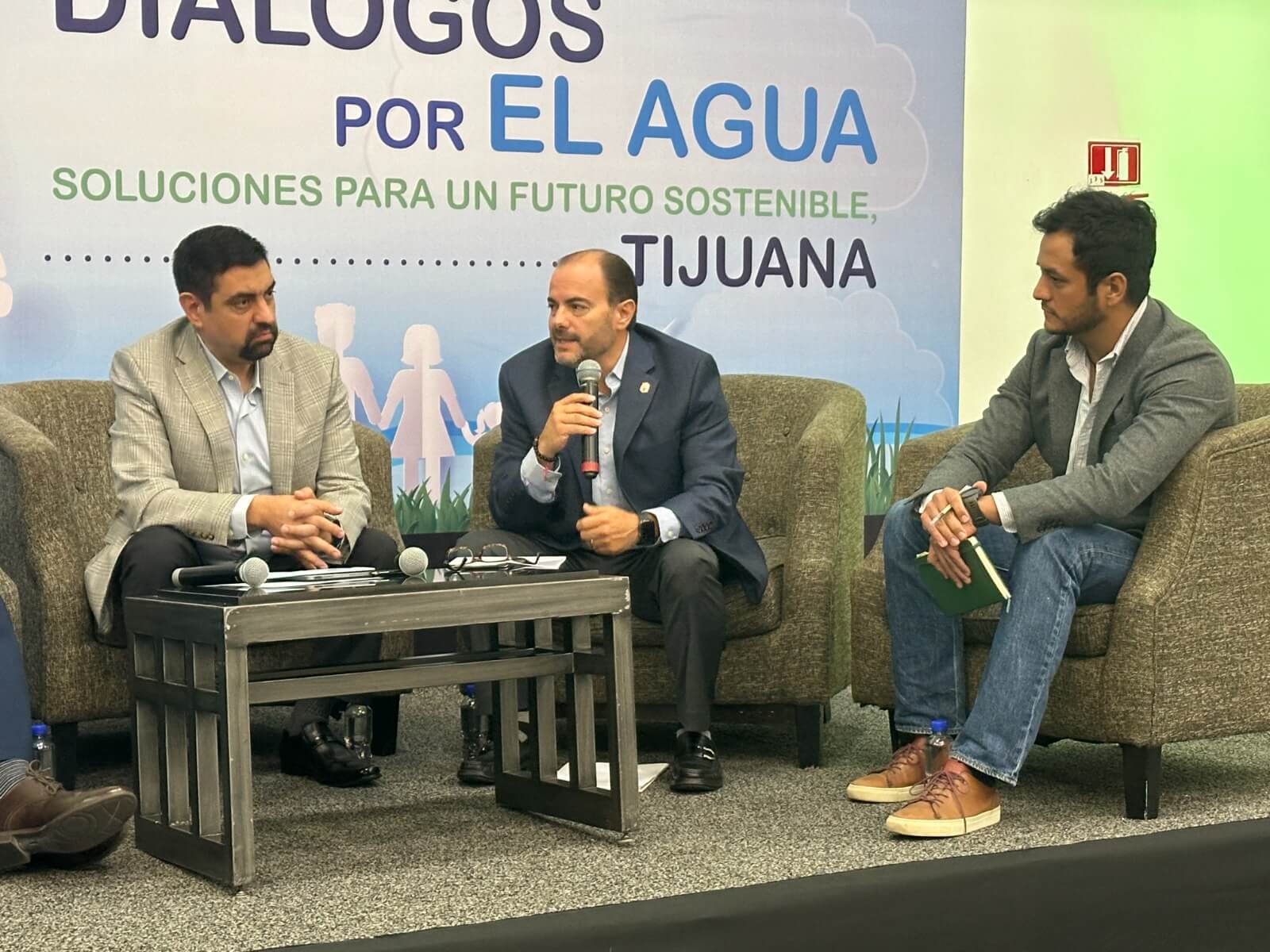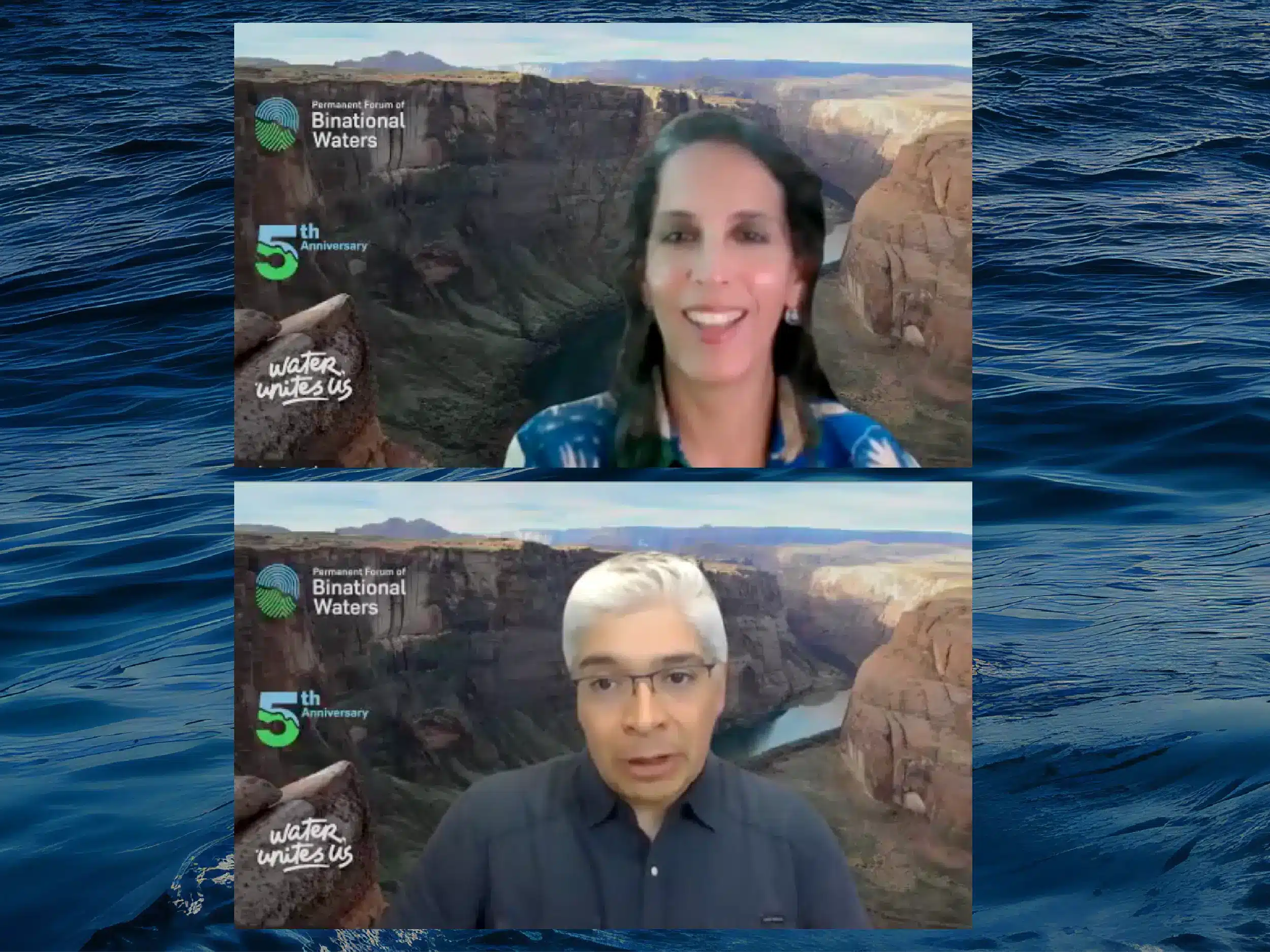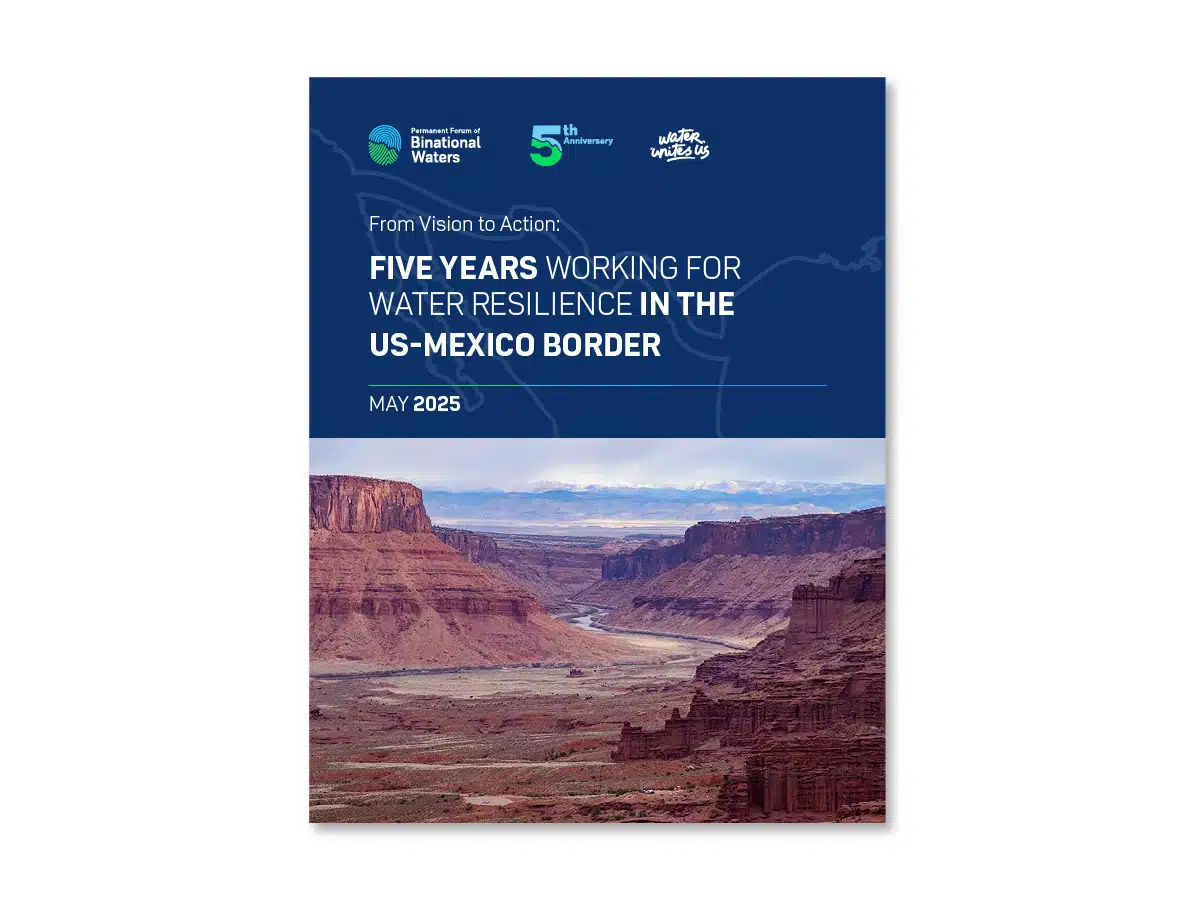Erick Velázquez, the project coordinator for the Tijuana River Basin at PFBW, believes that there is a water crisis between Mexico and the United States, caused by various factors including governance.
Erick Velázquez Hernández, the Project Coordinator in the Tijuana River Basin for the Permanent Forum of Binational Waters (PFBW), participated in the event “Dialogues for Water: Solutions for a Sustainable Future,” held this month at the Gran Hotel Tijuana.
The event, organized by the State Commission of Public Services of Tijuana (CESPT), the National Association of Water and Sanitation Companies (ANEAS), and the Water Advisory Council, gathered experts and leaders in water management to discuss crucial issues related to water in the region.
During his participation at the forum, Erick Velázquez Hernández, an expert in water governance, emphasized the importance of this topic. He described water governance as
a broad range of political, social, economic, and administrative systems that are essential for the development, management, and allocation of water resources and services.
He explained that water governance is a multi-level process, involving various scales from local to global, and includes the aspects of policy making, regulation, and distribution within different sectors such as agriculture, urban water supply, and ecosystems, among others.
Velazquez then reflected that the idea that water crises are ultimately a governance crisis, is a well-established concept and embraced by international actors such as the Organisation for Economic Co-operation and Development (OECD).
Velázquez also highlighted the need for specific and standardized data for border basins, including information on volumes, flows, and water quality, among other crucial aspects.
A key point of his participation was the importance of binational collaboration in water governance at all levels, not limiting it to a “top-down” approach, meaning not just making decisions at a higher level and then informing others. He stressed the lack of regular monitoring and the need for in-depth studies of flows and the status of groundwater bodies in the region.
Velázquez also underscored the importance of understanding the water footprint of different economic activities to grasp the true distribution of water resources and how much water is being exported through products and services made in the region.
The meeting addressed various challenges and proposed solutions in sustainable water management, investment in water infrastructure, and long-term planning. Success stories, such as that of the state of Aguascalientes, were highlighted as examples to follow. The need for greater transparency in water management was also mentioned, emphasizing the crucial role of citizen participation in this process.









Responses